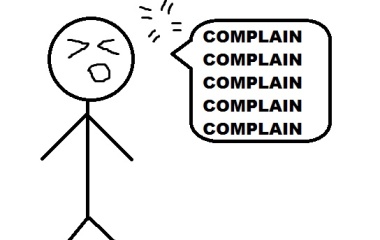
It is the rare occasion when the Torah actually characterizes an individual. Rather through an analysis of the Biblical narrative, we are meant to draw appropriate conclusions, nuanced as they may be. It is, for example, the actions of Yosef and his brothers that are described in the text, without the Torah assigning blame for this tragic dispute. Of course this leads commentaries to differing conclusions, which no doubt is the intention of the Torah in the first place. After all, events and people’s actions are not black and white but have many shades of gray.
Though Moshe Rabbeinu is the dominant figure of the Bible, our knowledge of him is based solely on the Torah describing his actions. We are never told that he was pious or honest or smart or even that he was quick tempered. Yet we can piece together a pretty complete picture of this greatest of all leaders by seeing him in action; his passion for justice, his courage, his dedication to his people - constantly rising to their defence even when their case was quite weak. However, there is one character trait that is the exception that proves the rule; “And the man Moshe was very humble, more so than any man on the face of the earth” (Bamidbar 12:3).
Why does the Torah single out this quality over so many others? One may suggest that Moshe had plenty of reason to be arrogant – after all he was chosen by G-d to be the leader and law giver - yet despite his greatness he remained humble, feeling the pain of the simple Jew as his own. Placing his fate with that of his people he desired only that he join his people, even if not as leader, as they enter the land of Israel. While we expect (or should be able to) honesty, integrity and sensitivity from our leaders, humility is so hard to maintain from a position of power.
Humility is a greatly misunderstood concept. It does not mean that one is unaware of one’s greatness. Rather it is using that greatness in the service of G-d. Strangely the Torah does not tell us of Moshe’s humility in the book of Shemot when we first meet him but rather informs us of his humility only after he is criticized by his sister Miriam. The truly humble person is one who feels no need to respond to each and every criticism and is able to ignore (when appropriate) personal attacks. They are too busy doing what needs to be done rather than worry about how their actions will affect the honour they receive. A humble person does what is the right thing to do, rising above political considerations. They understand that whatever abilities one may have is a gift from G-d meant to be put to good use.
Perhaps even more instructive is analyzing what it was that enabled Moshe to be so humble. It was Moshe’s encounter with greatness – with G-d Himself - that inspired his humility. In coming face to face with greatness one realizes one's own limitations. Man is often humbled when he witnesses the power of nature; be it a hurricane, the Grand Canyon, or when one stands alone with the myriad of stars on a eerily quiet night. Moshe, as the only human to speak face to face with the Divine Creator, was the one to most appreciate the unbridgeable gap between man and G-d, between “the man Moshe” and the Holy One Blessed be He. Moshe understood that his enormous talents are to be put to use in carrying out G-d’s will.
We live in a generation where humility and true greatness are rare qualities. As moderns – at least in the Western world – have become estranged from G-d, as man deifies himself, arrogance has become a defining trait of our generation. Maimonides writes that “one who has a haughty heart denies the essence of Judaism” (Deot, chapter 2). We must strive to “place G-d before us always”. To have such a relationship with G-d means becoming, to paraphrase Maimoindes, an extremist in humility. May we be inspired by the example of Moshe, may we feel the presence of G-d in our lives enabling us to lead a life that reflects the admonition of our Sages “be very very humble”.



